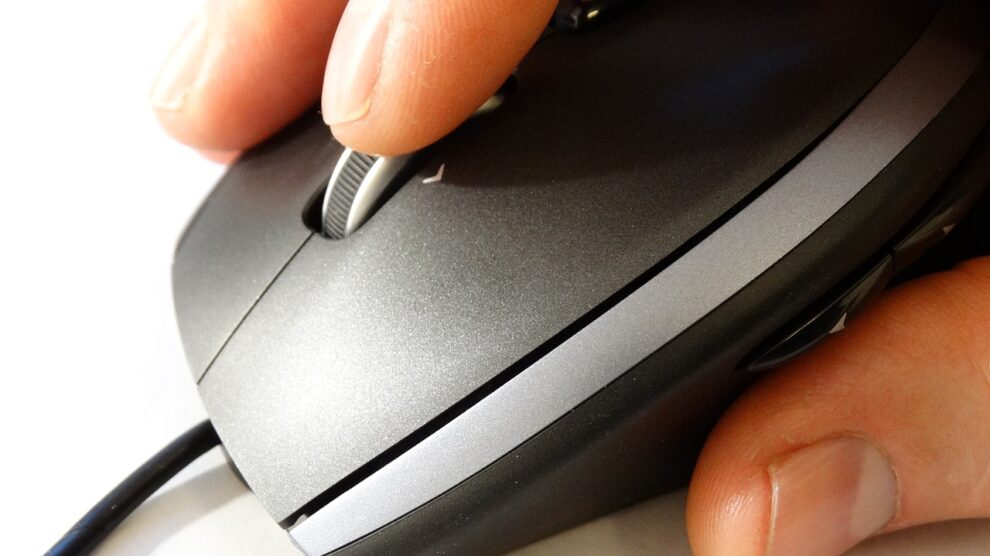We don’t click like we used to. Take the simple act of deciding where to go out for dinner, for example. In the past, we might have clicked on a restaurant’s website, perused the menu and specials, and made our choice. But times have changed. Today, people are much less likely to interact with a restaurant’s website and much more likely to read pithy Google Reviews while scrolling through photos shared by fellow diners, without ever leaving Google.com.
Because clicking from Google results to a website used to be the go-to action for gathering information online, the effectiveness of SEO was often measured in website traffic. However, our search behaviors have transformed dramatically in recent years. Today, people can often get the information they’re looking for without a single click. To thrive in this new world, marketers must rethink how they measure SEO success.
The Shift Towards Zero-Click Searches
We used to click around for information on consumer goods and services, but now we read Google’s snippets right on the search results page. Similarly, when looking for the nearest pharmacy, we now turn to Google Maps instead of navigating to a drugstore’s website.
We’ve entered the era of the “zero-click” search, where users obtain the information they need directly from search results. Essentially, people are clicking significantly less, primarily due to the sheer convenience of these changes. The rapid adoption of media platforms like TikTok, Spotify, or YouTube further demonstrates this shift, where the user is automatically taken from one video or song to the next, no click required. This convenience-driven evolution has also been influenced by emerging privacy constraints and advancements in consumer technology designed to thwart ad tracking.
In fact, recent studies have found that between 25% to 65% of all searches end without a click. Apparently, people can get all the information they need without visiting individual websites — so they’re opting not to click over. This trend shows no signs of slowing down, especially as search engines like Google and Bing incorporate artificial intelligence into their results. As a result, digital marketers are left grappling with the challenge of deciphering the impact of these changes on their paid digital media efforts. Marketers who traditionally relied on clicks as the primary gauge of success now also need to redefine what numbers are truly important.
SEO Metrics, Redefined
In this evolving digital landscape where the click is no longer king, our measures of success must also evolve. As marketers, we must ask ourselves: What really matters today? Do we care solely about SEO rankings and website visits, or do we need to take a more holistic view of search data?
If we place too much emphasis on traffic as the ultimate metric, we overlook critical aspects of how people access information today. A diner searching for a restaurant’s operating hours on Google Maps may never visit the restaurant’s website, yet having this info readily available on Google can sway dining choices. Similarly, when shoppers at a convenience store consider a battery purchase, finding the information they need on a search results page can quickly and directly contribute to battery sales even if they never click on a manufacturer or retailer’s website.
So, how can we measure success in the no-click era? Here are some approaches:
Consider Advertising Value Equivalency (AVE). In public relations (PR), AVE serves as a vital metric, assessing the value of earned media coverage by estimating the cost of equivalent ad placements. We can apply this concept to SEO efforts that secure top search results — as well as knowledge panels or AI-generated results — on Google, since users read and engage with the information, even without visiting websites. Think of those top results as a premium billboard: highly visible and attention-getting, even if unclickable. Picture your SEO like owning the world’s most coveted billboard space and consider its value in terms of Cost Per Mille (CPM).
Pay Attention to Impressions. For a comprehensive understanding of your SEO’s impact, explore the connection between overall brand searches and zero-click impressions. Impressions, another commonly used PR metric, represent the number of individuals who have seen a piece of earned media. In the context of searches, we can examine search impression statistics. While these figures are softer as they don’t reveal what actions viewers took or the impact, they still offer valuable insights. Think of your top Google search ranking as a high-profile media impression. What’s the value of that exposure, even if it doesn’t translate into a click?
Monitor with third-party tools. Most SEO tools today alert you if a search query results in a rich result, such as features in knowledge panels or “people also ask” recommendations. As these SEO tools continue to evolve, they will likely track keywords against evolving AI results, which will prove valuable in measuring zero-click data.
Survey Site Visitors. Consumers are asked for feedback on nearly every good or service these days, whether the comfort of a flight or the fit of yoga pants. As a result, many people readily and habitually provide valuable input, often at no cost. Capitalize on this by asking site visitors about their brand discovery or selection process, as their purchase may have started with a prior zero-click search.
Try Correlations and Causation Modeling. Explore whether an increase in overall search, including zero-click searches, correlates with overall results on your website or other retail channels like Amazon. Regardless of clicks, does search behavior drive sales? A univariate or multivariate regression model can help you understand the relationship between a search impression and revenue for the business. A time series regression model, for example, may find that 1000 zero-click search impressions are worth $100 in revenue. This is valuable information that can be used to justify or expand your search presence.
For a clearer understanding of the impact on your website traffic, start by taking these initial steps:
- Benchmark and monitor your current high-ranking impression and click keyword data in Google Search Console and Google Analytics 4 (GA4) — then track your clickthrough rate (CTR) and daily traffic as zero-click searches increase.
- Monitor your direct website traffic to study if it increases as AI-provided results become more common.
- Monitor AI search results for the links to your website, if any.
- Monitor your keyword search impressions and note any changes as search generative experience (SGE) becomes more common.
Ultimately, We Must Think Beyond the Click
Clearly, the role of SEO has evolved dramatically. Today, SEO is less about driving website traffic and more about seamlessly delivering precise information to users when and where they need it. The click is no longer the primary measure of success — it’s just one piece of a bigger, more intricate puzzle.
Undoubtedly, search engine results pages (SERPs) are evolving quickly today, with changes happening on a near-daily basis. In this environment, we need to vigilantly monitor Google, Bing, and industry news reports to stay up to date. As digital marketers, adapting to this new landscape is not a choice but a necessity. We must boldly overhaul our metrics, crafting them to accurately capture the value of zero-click searches and embracing the far-reaching impacts of SEO. These new metrics will require adaptability and customization, molded by factors such as industry dynamics, consumer expectations, and changing online behavior.
Continuing to fixate on clicks will result in wasted effort and missed opportunities. Those ready to shape a fresh, more insightful digital marketing paradigm will emerge as the victors in the no-click era.





